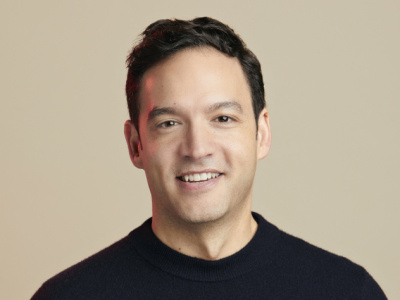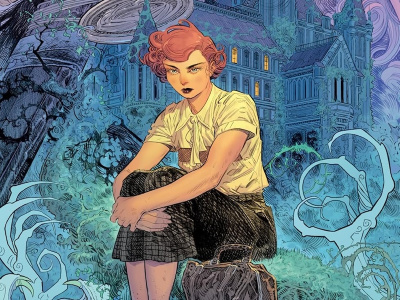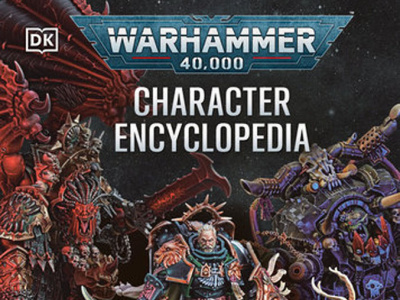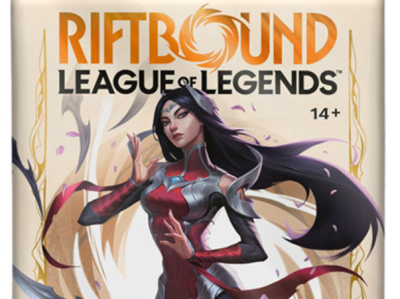Steve Geppi is the CEO of Diamond Comics Distributors and its parent company, Geppi Family Enterprises a company that grew from a tiny back-issue store to a major force in the comics industry. From 1993 to 2020, Diamond was the sole distributor to the Direct Market. For ICv2's Comics Direct Market 50th Anniversary celebration, historian Dan Gearino, author of Comic Shop: The Retail Mavericks Who Gave Us a New Geek Culture, talks to Geppi about his years in the business. In Part 3, he looks at the realities of the Direct Market today and Diamond’s place in it. Part 1 covers Geppi's early days selling back issues in a tiny comic shop and how he moved from that to being a distributor. In Part 2, Geppi discusses the growth of Diamond and how it weathered the market bust of the 1990s.
For an overview article on the history of Diamond Comic Distributors, see "Origins, Dominance and Now a 'Gut Punch': The Story of Diamond."
This interview was conducted as part of ICv2’s Comics Direct Market 50th Anniversary celebration; for more, see "Comics Direct Market 50th Anniversary."
To watch a video of this interview, see "ICv2 Video Interview: Steve Geppi – Part 3."
Give me an idea of Diamond today. With the shift with the other distributors, what's the big thing? Is it still selling comics to comic book shops? Is there some other kind of bucket that is paying the rent at Diamond?
I would say, to be honest, with our loss of volume in the comics side, we're doing fine, but we would love to get it back. Alliance, which is the equivalent of a Diamond, although, not on exclusive or dominant level, Alliance Game Distributors has been a real boon for us. Alliance is a juggernaut right now and does extremely well.
Recently, I think Milton wrote the article in ICv2 where he gave me a little bit of Monday‑morning quarterbacking—sorry, Milton, but I got to say it—where he said, I should have done this 10 years ago (see "It’s Time to Merge Diamond and Alliance"). Easy to say from your chair. Hindsight being 20/20, it wasn't as easy as, "We're going to combine Diamond and Alliance. We'll make everything happy."
Those thoughts were considered, and, quite frankly, in some level, are still being considered. While there are great advantages to being the so‑called only game in town when that was occurring 10 years ago, there are certain restrictions and different other limitations that are too lengthy to enumerate here.
I do feel that Alliance was a major purchase for us over 20 years ago. It turned out to be a great thing. They had their own series of major losses. When they lost Asmodee after becoming their exclusive distributor, that was like losing Marvel. The irony of which is Alliance is bigger today than they ever were.
Two up, three back, three up, two back, you build. That's the tenacity that you have to have in any business in order to survive. The sun doesn't come up and shine with Steve Geppi's name on it every day and say "Let's make Steve's life great." Steve's responsible for his employees, his family, and a lot of things, and we do our best to try to make them all work.
I love the industry almost to a fault. Not trying to sound disingenuous, but I feel the pain when there's pain to be felt. We've had to become the bank of the industry, which all the distributors were at one time, but it became more so when we were the so‑called only one. I like to think that saved a lot of accounts.
Those who would want to jump from distributor to distributor to stiff them weren't too happy about it because they didn't have a lot of places to run. Even then, in those cases, we still helped people stay in business. I have accounts in my mind that might have bounced 50 to 100 checks over the years and now are totally great accounts because we helped them survive.
Maybe I'm blowing our horn a little bit at the things we do, but it's not at the expense of not recognizing that a lot of things have happened. One of the biggest issues for us in recent times has been the cost of freight. We're like the evil empire when it comes to freight. People don't understand, I don't think the ability is there for them to see that the services that we provide don't come free. If we were just opening boxes, filling orders, and shipping them, that's one thing. We are dealing with a whole different world of information and services that we do, seminars we run, Free Comic Book Day. There’s dedicated people to so many things. You can afford to do that when your volume is X, but when your volume is Y, it changes a little bit, and you have to make sacrifices.
Usually, in the mind of a retailer, the first and foremost thing is price and speed of delivery. It was a modern miracle that with one distributor, every week, no matter where you were in the world, you got your books the same day. That I'm very proud of we did. We even had a period where UPS was on strike many years ago, and we managed to duplicate that feat for a short period of time until they got off the strike. I'm going into a commercial here, so I'll back off.
No, that's OK.
One of the reasons is I'm hoping the people who are watching this are not just the veterans of the industry. For the sake of some of the newer people who I've not met and maybe not done business with for many years. I am who I am. I am who I was.
I still love the industry. I still do everything I can when I wake up to make it better, and I'm willing to take my lumps when I get them, but we're here for the long term. We're not here to try to screw anybody. That's suicide.
You have to look at your own business sometimes and compare it to what you go through, and what are things that your customers ask of you that you just can't do, and you have to say no. There is a list. Everybody has one. But you try to balance it out with other things. That's what we've been trying to do.
This history of the Direct Market for 50 years, the wonderful thing about it is it is 50 years. That we get to say, 50 years ago, we started out with a bunch of little guys around the country trying to sell old comic books, and look what it's done.
There was a time when no one would know who Iron Man was. He was a second‑tier character in the Marvel Universe. He's a household word now, thanks to movies. It's unbelievable what has happened. The school systems. I did a program with the state of Maryland called Comics in the Classroom, where no one ever thought that that would happen, and it did and it became well accepted. We've got a lot to pound our chest about, but we need each other. We need each other.
There's more distributors now. God bless them, I welcome them. I have a philosophy called "my competitor, my ally." The guy or gal who can do the most to hurt me is likely the guy or gal who can do the most to help me just by not hurting me much, let alone working with me. If Marvel puts out Spider-Man and DC puts out Batman and a kid has $4, naturally they want him to buy their comic. Fine, that's the kind of competition that should exist. Until they created Batman versus Spider-Man, there's a product that can't exist. There's where working together says, "You know what? We can still battle over the individuals, but let's do something together. What can we do to make the industry bigger? What could we do to give the retailers more to sell? What can we do to give customers more to buy?" That's been my philosophy.
While we had this "monopoly," as people call it, there's never been a different thought in my head, never and never will be. Not at this point in my life.
Just a couple of just forward‑thinking things. Obviously, there's been a lot of changes for Diamond just these last couple of years. How do you place this in the history of the company? Are you guys back in a much smaller, more entrepreneurial mode, would you say?
I don't think we ever lost the entrepreneurial spirit because we were always trying to grow the industry. If we couldn't grow Diamond by getting another account because we had all the so‑called existing accounts, the way to grow it was by getting more products to offer and more people carrying comics, and the book market is kind of evidence of that and other cases.
I think that the period we're in now is somewhat of a restructuring and it's exacerbated by the fact that in today's world, now, you’ve got (I hate to say it, I hate it) the work‑from‑home mentality. We've always had work‑from‑home people. It wasn't like anti-work-from-home where it was necessitated, or there was a person that we wanted to hire that didn't geographically make sense; we had great success with it. But the thought that the whole world works from home is foreign to my kind of thinking, lose all the internal combustion over physical contact, but when you add that to the mix, it's changed a lot of what the world's like. For example, recently, Diamond had to downsize its corporate offices and square footage to half of what it was, because a lot of people work from home.
I went over there the other day, and even then, I thought it was still plenty of room at half size. That's on certain days. Some days, we have a lot of people in, and other days, we don't. What it says about business is that no one would have ever predicted that would be something. If you're in the commercial real estate business right now, particularly rentals, selling or renting office space, they’ve got big problems, because everybody's downsizing and there's not a lot of new people coming in to pick up that space. A lot of these old office buildings are being converted to condominiums. Witnessed that in downtown Baltimore. All the old mega-buildings that were once housing big companies are now apartment buildings.
When you look at that period, the period we're talking about now, with the change in distribution, the goal is still to grow the market and maybe, just maybe, by comics being more available through outlets that we didn't reach that they do, it'll grow the market for me, because, for example, if PRH picks up a bunch of bookstores who never carried comics and they suddenly start carrying comics, guess whose phone's going to ring, too? Mine. They want the other stuff. That's good.
When you start thinking about the bigger picture, it sounds disingenuous, it sounds like a speech, but it's really true, it's really true, the rising tide, as they say, raises all boats. That's what we should be concentrating on.
The publishers, distributors, creators, retailers, everybody should be concentrating on how do we grow the market? How do we give better product from a creative standpoint? How do we motivate the creators by giving them a better deal or whatever it is it takes to motivate them so they don't migrate to another venue? How do the distributors find ways to give new services and do it in a way that is cost‑effective for them so they don't go out of business?
We've got a bigger problem. How do the publishers find ways to keep giving good product, meet deadlines, keep the trains running, and reward the consumers who, remember, at the end of the day, that's what this is all about, those people that regularly go in there with their hard‑earned dollars every Wednesday or whatever day and they spread it out there, they've got other choices. Comics aren't cheap anymore. Four bucks for a comic book that takes how long to read versus a guy who can go buy something else that might take longer?
The good news is we have a very desirable product, but we can't take it for granted. When everybody works together (it sounds like a kumbaya speech, but it's not intended to be that) when everybody works together, you've got a much better chance of survival. You don't want to be on the lifeboats on the Titanic and battling each other to see who stays on. When you get in an elevator and it's stuck, they tell you to be quiet, conserve air. It's not always about competition. It's about survival and getting along.
I think there's room for it, because the market can be so much bigger than what it is. It's not like we've exhausted every nook and cranny of who might buy a comic. The world's a big place. If you look at Japan, it's a $4 billion market. We're tiny compared to them. We just need to get the books out to more places, more readers, and let the world know we are unified. I feel like I'm in the Middle East right now on this. [laughs] It's like when they see you fighting, it's not attractive. I don't know any other business, to my knowledge, where the consumer knows who his retailer's supplier is, or cares. You don't go into a Walmart and say, "I want to talk to the distributor for these lawnmowers." They could care less. They don't know. In our world, because of the nature of our press, whatever happens [laughs] is news to everybody. Maybe that's the nuance that's a good thing because it is small.
How would you describe your current role at Diamond? Are you doing CEO stuff? How does that work?
Keep in mind that because I not only own Diamond and Alliance, there's like 11 other companies that I own, and I'm guilty of working from home in most cases for those very reasons long before COVID. I find that I get more done, in my case, because I have the authority to bring meetings to me when necessary and get more intimacy there.
I'm trying to balance all the balls, juggle all the different companies. I'm not devoted only to Diamond. It all comes under the umbrella of Geppi Family Enterprises. When you see an ad for DC, it might say at the bottom, "A Time Warner Company," or, even now, "An AT&T Company." I don't know. It's the tagline for us that hasn't been promoted. In recent years, I've been pushing it to say it's a GFE company, Geppi Family Enterprises.
What we mean by that is that aside from Diamond being your distributor, or Alliance being your distributor, you have access to all these other companies that Steve owns to augment or supplement your business. You need supplies? There's Ironguard from E. Gerber products. You want to go auction your collectibles? We got Hake's Americana. We got the Overstreet Price Guide and Overstreet Access. We're always trying to do things because what I try to envision as a former retailer is if I'm still buying the counter, I need all the help I can get. I don't just need new comics from the major publishers, even the minor publishers. What else can you do to help me? I don't only need product. I need information. I need opportunity. Free Comic Book Days, seminars, meeting with other retailers, interconnecting to Comic Shop Locator Service.
You find out quickly, as I did from going from a couple of handful of accounts in Maryland to suddenly being a full‑fledged distributor, there's a whole lot more you have to be to a retailer than just that.
I'd love to be your speed dial as a retailer that says, "Customer walks in the store, and they want this. I don't have it. Call Diamond." Whether it's a back issue, whatever we can be, it's what we want to be. So that you get the maximum potential of sales out of your store, even if it's something you never thought of carrying. We want you to know it's available.
We're working on a few things that I can't talk about right now that lend itself towards that. What would we be? Let's call it even more of a backup for a retailer, so they have an addition to what walks into their store. They can benefit from what surrounds them in the way of opportunity of sales that don't even occur in their store that we can bring to them.
That sounds tantalizing, Steve. Give me another crumb here.
It involves Diamond bringing more sales to retailers without them doing very much. They're limited geographically to what's around them. They need some help securing sales from areas that, maybe, we can drive to them where they get a benefit financially from it. I don't want to go too much because I'll get hollered at.
Are you thinking back issues, or is this more than just that?
I've talked about that in the past. We never got to that because when COVID hit, that's still in one of my plans to create a back issue service. Still in the plans, but that has taken a little bit of, no pun intended, backseat [laughs] because of COVID. Now, a lot of things have happened.
Look, Diamond's been gut‑punched. Everybody was gut‑punched with COVID. We lost DC, or most of it at least, other than the UK. That was a gut punch. We lost the exclusive Dark Horse, gut‑punched. Lost IDW, gut‑punched. We lost Image, and we have survived all those gut punches.
Still, with the market being as fragile as it's always been, we feel that we are an important cog in this industry. If there were no Diamond, selfish as it is to say, it would be a disaster. It's already a semi‑disaster, whether they admit it or not, that retailers who got used to buying from one place and were able to predict their labor hours with all the stuff coming in the same day, doing their subscription services once instead of two or three times a week, it's disrupted all of that.
That said, it is what it is. Let's look at it now, and say, "We don't have to go back to what we were. Let's find a way to give them..." In a perfect world, a retailer has the choice now to buy everything from everybody.
It's back where it was 20 years ago. The problem with 20 or 30 years ago, I should say, is that it wasn't enough volume. We half‑sized. While we've grown, and the industry is much bigger than it was 30 years ago, it's still not at a size where it can afford too many choices. Let's hope that those remaining distribution choices are solid and healthy.
We tried to carry the weight of the world for 30 years as the so‑called only distributor. I think we did a damn good job if I say so myself. If now, the world feels the need to have that second, third, or fourth choice, or whatever that is, so be it. We'll compete. We competed back then, and we ended up where we ended up.
I'm confident as long as we all try to build the industry, because you know what? At the end of the day, if the industry fades, we're all in trouble. We can't afford that, and it won't happen. I'm not going to let it happen as far as what I can contribute.
Last thing, Steve, is unless they've invented some way to do this that I'm unaware of, all of us must retire at some point. I wonder (and I think I asked you this when we talked a decade ago), what do you see? In five years, are you going to be running these companies? What's your timeline?
I'll be totally candid with you. I will turn 74 in January. January 24th to be exact. While my body says I'm 74, my heart says I'm 30. I mean that in different ways. I have the same zest for life I've always had. I absolutely am in love with my business. It still trips my trigger to succeed, to help, to see it come full circle, and even beyond.
God willing, I'll be here in five years. I can't take a day of my life for granted. Every morning, when I wake up, I thank God that I'm on the right side of the grass. That said, I don't have any real plans to go away. I can't imagine me retiring. I know that sounds pretentious, but it's not in my DNA to wake up in the morning, and say, "I got nothing to do." I could find a million other hobbies.
I could tell you this, at a minimum, the back issue market is never going away for me, the collectability, and all. First and foremost, I'm a comic book collector, a comic book lover. It's so embedded in me. I've been doing it my whole life.
How ironic or prophetic was that my very first job, sorting in the back of that little store I told you about, the guy I forgot to tell you who gave me a job sorting magazines, as he called them, and comics was nine years old? Then, I go on vacation as a married man, and I rediscover them. It's been all since then.
Geppi's Comic World started July 1st, 1974. I started as a mailman, as a mail‑order dealer in late '72 or '73. I've got to pinpoint that. 50 years of my 74, not counting the childhood years where I had comics, I don't know anything else.
I love the fact that the tentacles of Diamond have led to gaming, have led to toys. I've got a toy company. I've got a publishing company. I've got a distribution company. I've got an auction company. I've got all kinds of strange stuff.
I see that as Geppi Family Enterprises, that's who I want retailers to think they're buying from. Yes, the invoice says, "Diamond Comic Distributors," but don't forget what else I have, that you're talking to the same person. I own all those companies. When you want to have an interaction with any of them, guess what I have?
I think that separates us from everybody else. Not all the other competitors have anywhere close to what we have. Everything's focused on distribution. If your business is so one‑dimensional that the only thing you care about is price and speedy delivery of freight, and that's it, then make your choices. I do believe you need more, because we don't have the luxury of having tens of thousands of people going into the store every week like a Wal Mart. We need every dollar we can get, and the retailers are blessed to have the privilege they have in their community, to be seen as something special. I'm going to do everything I can to help them. I'll take my lumps, but I'm not going away. I'm going to take everything I have in my power to make this industry survive and survive well and grow and be seen, just like the movies have been seen.
All of a sudden, if we were just looking at the movie industry, and what percentage of comic book movies were 30 years ago and now, I don't even have to make the case. It's unbelievable. You could make an argument, there'd be no movie industry without movie theaters having comic book movies. With people having big screen TVs to sit home, but they want to watch those superhero movies with special effects in the theater. I don't see that going away.
Steve, thank you for all your time. This has been great.
Do what you got to do, Dan. I appreciate very much the interest you're taking in this whole project from Milton, the 50 years. Somebody had to do it.
That's why guys like Milton are around because he was there in the beginning like I was. He's still there like I am. We might have competed, but we have shared a lot of experiences, even on a personal level at old distributor conventions. Life's too short to make one person your friend, one person your enemy. You need to get along. That's what this industry does.
We got clubhouses all over the country called comic book stores. People every day leaving the strife of watching the news and all the wars that are going on to then go and escape for a little while. We want to be good custodians.
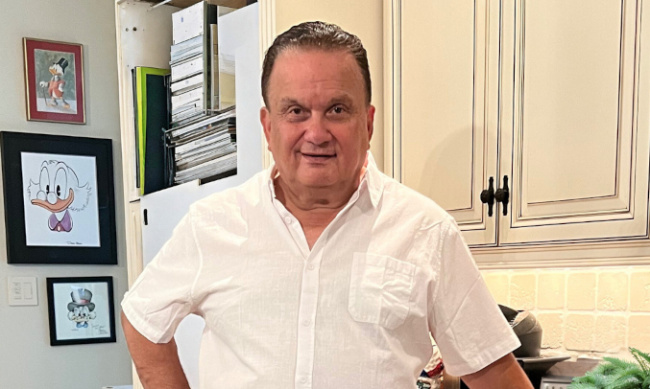
Diamond's Place in the Comics Market Today and in the Future
Posted by Dan Gearino on November 20, 2023 @ 5:00 am CT
MORE COMICS
People on the Move Round-Up
August 13, 2025
Our People on the Move Round-Up reports on the new Funko CEO, a move to Penguin Random House Publisher Services, and an industry vet to Prana.
Harvey Award Nominees 2025
August 12, 2025
Here’s the list of 2025 Harvey Award nominees.
MORE NEWS
Comprehensive Guide to Characters in the 'Warhammer 40,000' Universe
August 13, 2025
Penguin Random House will release Warhammer 40,000 Character Encyclopedia , a new character guide book, into retail.
'Spiritforged'
August 13, 2025
Riot Games unveiled Spiritforged , the second Riftbound: League of Legends TCG booster set.




